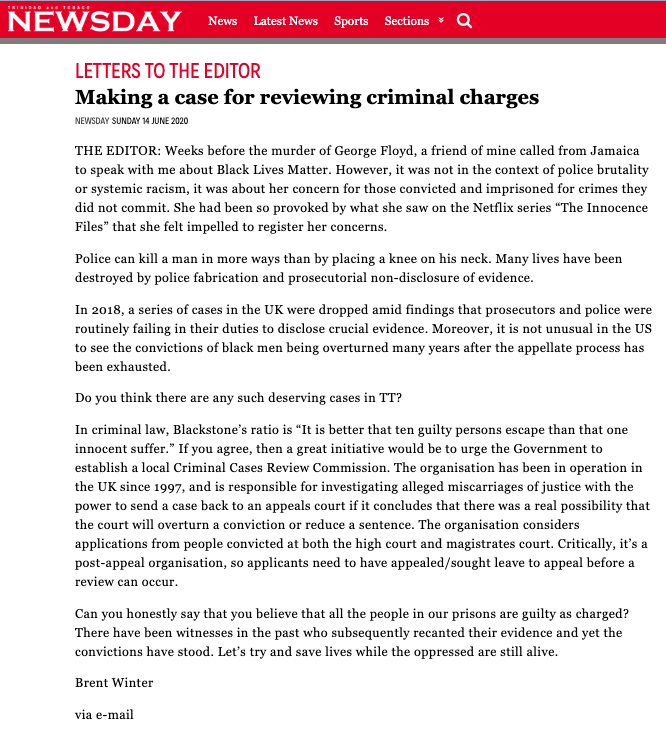Confronting Wrongful Convictions in Trinidad and Tobago — A Conversation with Attorney Brent Winter
A Trinidad attorney raised alarms after a simple conversation sparked a national question: what if innocent people are behind bars? Brent Winter began his career as a prison officer, spent a decade prosecuting cases, and now defends the accused. In 2020, after a friend in Jamaica asked him about Netflix’s The Innocence Files, he wrote to the Trinidad and Tobago Newsday warning that “police can kill a man in more ways than by placing a knee on his neck.”
Winter’s experience revealed a troubling truth: wrongful convictions are almost invisible in the Caribbean. Existing legal avenues are narrow, reliant on recanted eyewitness testimony, and rarely successful. Without independent bodies like the UK’s Criminal Cases Review Commission, the system leaves innocent people with no real chance at justice—even as the death penalty remains on the books.
In this episode we examine how public indifference, political will, and systemic failures collide in Trinidad and the wider Caribbean, why wrongful convictions undermine true crime prevention, and why the debate on capital punishment cannot be separated from the risk of executing the innocent.
Content note: References to wrongful conviction, imprisonment, police misconduct, prosecutorial misconduct, and the death penalty.
Connect with Attorney Brent Winter
Key Themes
Why wrongful convictions in the Caribbean remain invisible
The dangers of eyewitness testimony and recanted evidence
The political and cultural barriers to reform in Trinidad and beyond
How wrongful convictions undermine crime prevention
The death penalty debate when innocence is not guaranteed
Brought to you by The Wave on the Frequency Network
Production, Distribution, and Marketing by Massif Studio & Production & The Tallawah Group
For sponsorship inquiries, contact: hello@MassifKroo.com
